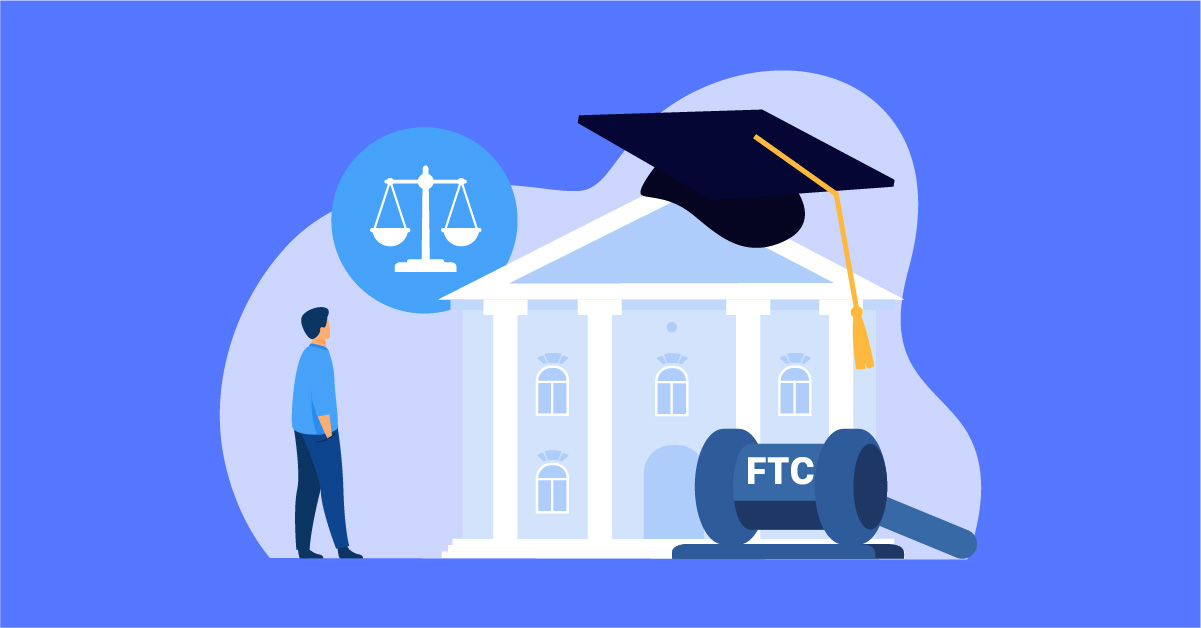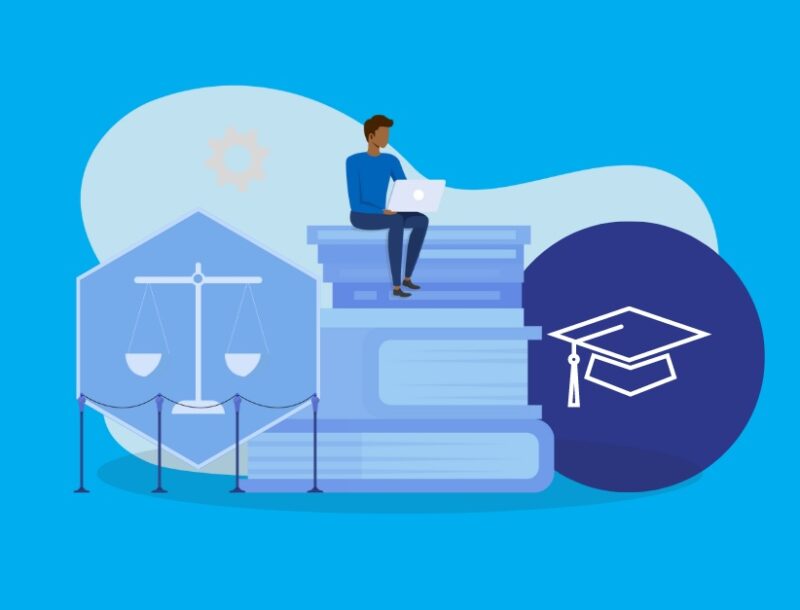FTC Enforcement Actions Highlight Student Loan Scams and Deceptive Practices

Back in the fall of 2021, the Federal Trade Commission (FTC) put 70 for-profit higher education institutions on notice that they would be laser-focused on deceptive practices that mislead students and drive them into debt. Since that time, the FTC has continued to be active in its enforcement in this space.
The FTC has taken a strong stance against deceptive practices in the higher education space, particularly those targeting student loan borrowers. In 2024 alone, the FTC secured over $63 million in refunds for consumers and imposed significant penalties on companies engaging in misleading tactics.
The PerformLine team took a deep dive into some of the largest of those cases and these were some of the common compliance themes and takeaways that we found:
- Misleading Loan Forgiveness Claims: Companies using “Biden Loan Forgiveness” scams faced consequences, highlighting the need for transparent communication on loan repayment options.
- Fake Job Placement Promises: Companies that inflated employment outcomes and offered fake partnerships. This is a great reminder to ensure your marketing materials accurately represent any job placement assistance that you may be offering.
- Impersonation of Government Agencies: Students should know exactly who they are dealing with to avoid falling victim to impersonation scams.
- Deceptive Marketing and “Urgency Tactics”: Companies should be sure to avoid using “urgency tactics” like “FINAL NOTICE”, “Time Sensitive,” “Complete Loan Forgiveness,” and “Tax-free Loan Forgiveness”, to pressure consumers. Make sure that you prioritize transparency and avoid aggressive marketing tactics.
- Incentivized Reviews and Programs: Student testimonials should be genuine and not incentivized as that might produce misleading information.
Here’s a breakdown of key FTC enforcement actions and the implications for higher education institutions in 2024.
Company and its owners charged with making unsolicited calls to persons on the Do Not Call Registry
Total Penalty Amount: $28.7 million
Regulatory Issue(s): Do Not Call Registry, Deceptive Acts
The FTC took action against the company and its owners for purchasing consumer contact information from websites where the consumers had submitted information under the premise that they would be getting assistance with job searches, public benefits, and other unrelated programs.
The court also found that the company had assisted and facilitated other companies by paying them to make in excess of 40 million calls to consumers that were on the federal Do Not Call Registry.
Enforcement Action
The court required the company to:
- Pay $28.7 million in civil penalties
- Stop telemarketing or assisting others with engaging in telemarketing to consumers
Student loan debt relief “scammers” charged students junk fees who were seeking assistance with debt relief
Total Penalty Amount: $7.4 million
Regulatory Issue(s): Deceptive/misleading conduct, Impersonation of Government Agencies, Telemarketing Sales Rule
The company and its operators made false claims that they were affiliated with the U.S. Department of Education in order to lure students into a debt relief program by using phrases such as “Biden Loan Forgiveness,” “Biden-Harris Student Loan Debt Relief,” and other similar phrases when communicating with consumers.
Over several years, the company collected over $8.8 million in junk fees by illegally obtaining account information from consumers to collect unlawful advance fees.
Enforcement Action
The enforcement action requires the company to:
- Pay $7.4 million in fees
- Cease operations in the debt relief industry
- Surrender their personal and business assets
Online career training company deceived service members and their families
Total Penalty Amount: $43.5 million
Regulatory Issue(s): UDAAP
An online career training company will pay $27.8 million in debt cancellation and $15.7 million in cash back to consumers, including service members and their families, who were harmed by its deceptive advertising for deceiving consumers with false claims about employment outcomes, job placement, and partnerships with major companies.
The company claimed that their “career placement team” would step in and find consumers the “perfect job.” They also falsely represented that “most learners” and “more than 80% of its graduates” are employed in their field of study.
Additionally, they made false claims on their website and displayed logos of well-known “hiring partners,” and deceptively incentivized consumers to post positive reviews in exchange for free extensions or “complimentary” extra time on their programs.
Enforcement Action
The enforcement action requires the company to:
- Pay $15.7 million to the FTC for consumer redress
- Cancel $27.8 million in debts owed to the company
- Stop misrepresenting their services, partnerships, or any other aspect of their program
- Notify each third-party review platform of the incentivized reviews that was posted in exchange for “free extension services” and ask that those reviews be removed from the site as soon as possible
Servicemembers and their families make sacrifices every day to protect our freedoms. We owe it to them to make sure that when they look to use their hard-earned benefits to further their education, they get facts and not fantasy.
Samuel Levine, Director of the FTC’s Bureau of Consumer Protection
What This Means for Higher Education Institutions
- Compliance with Marketing Regulations: Ensure your marketing materials and advertising claims are truthful and accurate. Avoid using misleading language or making outlandish promises about job placement or loan forgiveness options.
- Transparency in Student Loan Repayment: Clearly communicate loan repayment options to students and avoid making false claims about government forgiveness programs.
- Building Trust through Verified Reviews: Encourage students to leave genuine reviews on reputable platforms. Avoid practices that could lead to fake or incentivized reviews.
- Partnership Verification: If you advertise partnerships with companies to enhance job placement assistance, ensure these partnerships are real and can be verified.
- Internal Review and Compliance Training: Develop internal processes to review marketing materials and ensure compliance with FTC regulations. Consider implementing training programs for staff involved in marketing and recruitment activities.



